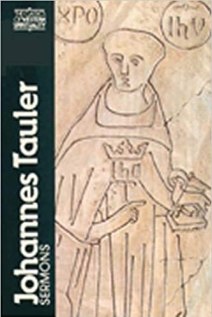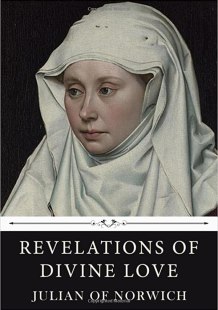by ThinkingWest
Christianity is no stranger to the great books of the West and stands out among the great books as the inspiration for many of the foundational works of philosophy, literature, and science. Thus, there are a subset of great books in the West that aim to study Christianity itself. The Medieval period (~600 AD – 1500 AD) is perhaps the richest time period for Christian writings, as it was during this period that Christianity grew from a fledgling religion only recently tolerated by Roman rule into the most dominating power Europe has ever seen. The Christian rise in Europe is special in many ways, in that (perhaps for the first and only time) a religious power displaced tribes and nations in the hierarchy of power.
Though many might (perhaps mistakenly) call the early part of this period the “Dark Ages”, many illuminating writings emerged for the consumption of Christians or their curious acquaintances. Ranging from neck-deep philosophical treatises on theology to practical guides to prayer, the great books of Christianity of the Medieval period built on the foundations laid by early doctors of the Church. The Medieval writers then strove to dig deeper, look higher, and paint with more colorful strokes the Christian picture that, quite literally, would inspire the art and imagination of later Christian generations. Here are those Medieval works of Christian genius belonging to the “great books of Christianity”.
This article is Part 2 of a multi-part series on the Great Books of Christianity. If you missed Part 1 on the Great Books of the Early Church, check it out here.
Published on thinkingwest.com on March 1, 2023.
1. The Ladder of Divine Ascent, John Climacus (Mid 7th Century)
Born in Syria in 579 A.D., St. John Climacus wrote The Ladder of Divine Ascent upon the request of the Abbot of Raithu, a monastery near the Red Sea. In this work, Climacus uses a ladder with thirty steps to describe a process by which one may uplift one’s body and soul to God through practicing virtues and avoiding vices. The thirty rungs, which allude to the years of Jesus’ life until the beginning of his ministry. The book has three sections, with the first describing the seven virtues; the second section describes how to strengthen one’s virtues and overcome vices; the third section describes higher virtues toward which asceticism is oriented, with the final rung representing love (ἀγάπη, agape). The Ladder of Divine Ascent is a favorite, particularly in Orthodox and Eastern Catholic circles, during Lent.

“As with the appearance of light, darkness retreats, so at the fragrance of humility, all anger and bitterness vanishes.”
John Climacus, The Latter of Divine Ascent
2. Proslogion and Why God Became Man, Anselm of Canterbury (Late 11th / Early 12th Century)
Proslogion and Why God Became Man are two works that reflect Anselm’s interests in rational and philosophical approaches which later led to his credit as a founder of Scholasticism. Known as a giant among philosophic circles, St. Anselm of Canterbury was an Italian Benedictine monk who ascended to the rank of Archbishop of Canterbury in 1093 and later designated a Doctor of the Church. Some have placed Anselm as the greatest Christian thinker in the period bridging St. Augustine and St. Thomas Aquinas. His work Proslogion is a prayer contemplating the attributes of God to reconcile seeming contradictory aspects of God. Why God Became Man was written in the style of a dialogue and addresses the necessity for atonement and Jesus’ crucifixion. While any work of Anselm’s is not for the timid readers, those with inclinations toward interesting philosophical questions in Christianity will delight in these two ancient classics.

“Come now, insignificant man, fly for a moment from your affairs, escape for a little while from the tumult of your thoughts. Put aside now your weighty cares and leave your wearisome toils. Abandon yourself for a little to God and rest for a little in Him.”
St. Anselm of Canterbury, Proslogion
3. The Four Books of Sentences, Peter Lombard (Mid 12th Century)
The Four Books of Sentences by standard theological text between the 12th and 15th centuries; writing a commentary on this work became the equivalent of a theological dissertation of today, as it once qualified the aspiring theologian to teach at the university level. Hence, many of the medieval theological scholars (Aquinas, Bonaventure, Ockham, etc.) wrote their own commentaries on this work. Thus, Lombard’s masterpiece may be the most influential theological text of the medieval period.

“Therefore when the mind knows itself and loves itself, there remains a trinity, that is the mind, love and knowledge.”
Peter Lombard, Sentences
4. Commentary on the Sentences of Lombard, Bonaventure: (Mid 13th Century)
Though many works of St. Bonaventure, a 13th century Franciscan priest, theologian, and philosopher who rose to the rank of Cardinal, could be listed, his best known work is his commentary on Lombard’s Sentences. This work best presents the unique thought of one of the Medieval period’s brightest minds. The work is probably best understood as a philosophical treatise on God; hence, it ranks low on the list of books to relax with on a lazy summer afternoon.

“To posit that the world is eternal or eternally produced, while positing likewise that all things have been produced from nothing, is altogether opposed to the truth and reason”
Bonaventure, Commentary on the Sentences of Lombard
5. Summa Theologica, Thomas Aquinas, (Late 13th Century)
One of the master works of all time in both philosophy and theology, St. Thomas Aquinas’ Summa Theologica is one of the most widely studied ancient Christian works. Thomas Aquinas is often thought to have been the foremost scholar in all Christianity, and his magnum opus is great evidence to his intelligence and borderline inhuman attention to detail. Summa TheologicaI is precisely what it sounds like: a summary of Christian theology, encompassing theological principles that often have one foot in the Bible and another on Aristotle. The Summa Theologica is a daunting undertaking for any reader, but presents a nearly limitless theological resource.

“God Himself is the rule and mode of virtue. Our faith is measured by divine truth, our hope by the greatness of His power and faithful affection, our charity by His goodness. His truth, power and goodness outreach any measure of reason. We can certainly never believe, trust or love God more than, or even as much as, we should. Extravagance is impossible. Here is no virtuous moderation, no measurable mean; the more extreme our activity, the better we are.”
Thomas Aquinas, Summa Theologica
6. Ordinatio, John Duns Scotus (Late 13th Century)
Ordinatio (also Opus oxoniense) is, like many other works of the great philosophical minds of the Medieval period, another commentary on the Sentences of Peter Lombard. This work is a revised version of his commentary given through a series of lectures at Oxford. By this time, such “commentaries” on Lombard’s famous Sentences were hardly recognizable as a true commentary; instead, the common practices used Sentences as a launching point for highly original theological thought. Ordinatio summarizes much of Duns Scotus’ philosophical thought, including his most famous argument for the existence of God. John Duns Scotus (” John Duns the Scot”) was a Scottish priest and Franciscan, professor, and theologian recognized as one of the four premier religious thinkers of the West in the High Middle Ages (including Aquinas, Bonaventure, and William of Ockham). Among his most famous theological disputes, was his advocacy for the immaculate conception of Mary, in opposition to the views of Thomas Aquinas.

“Likewise, man naturally desires that end which you call supernatural; therefore to that end he is naturally ordained”
John Duns Scotus, Ordinatio,
7. The Little Flowers of Saint Francis, Brother Ugolino (Late 13th / early 14th century)
The Little Flowers of Saint Francis is an eccentric work of murky origins on the life of St. Francis of Assisi and those of his circle. Though most scholars attribute the work to that of Brother Ugolino Brunforte (1262-1348 A.D.), the authorship of the work is not unanimously agreed upon. Nonetheless, the work details various legendary anecdotes of St. Francis’ life, including apparent miracles and examples of his piety. Though not held in high esteem as a biographical work, The Little Flowers of Saint Francis explains attributes still ascribed to him, such as his famous preaching to the birds:

“My sweet little sisters, birds of the sky,” Francis said, “you are bound to heaven, to God, your Creator. In every beat of your wings and every note of your songs, praise him. He has given you the greatest of gifts, the freedom of the air…”
Br. Ugolino writing of St. Francis, The Little Flowers of St. Francis, Ch. 13
8. Opera philosophica et theologica, William of Ockham (Early 14th Century)
Famous for “Occam’s razor”, which would remain his pervasive mark on philosophy, science, and logic, William of Ockham (in Latin Gulielmus Occamus) is considered one of the theological giants of the late Medieval period, among the ranks of Aquinas, Bonaventure, and Duns Scotus. In his philosophical and theological work, Opera philosophica et theologica, he addresses fundamental questions regarding the essence of God, His relation to His creations, and the reasons why God cannot be understood solely by our natural faculties. William’s Opera philosophica et theologica is not a singular work of his, but rather a later collection of his smaller works, including his Summa logicae (Sum of Logic), his In libros Sententiarum (Commentary on Lombard’s Sentences), and virtually all his works on the subjects of philosophy and theology. What are not included in the Opera philosophica et theologica include his political works.

“With all things being equal, the simplest explanation tends to be the right one.”
William of Ockham
9. Sermons, Johannes Tauler (Mid 14th Century)
Sermons is a collection of 23 mid-14th century sermons by Johannes Tauler, a German Dominican monk and theologian. Tauler’s eighty sermons contained in this work began to be collected during his lifetime as a traveling preacher. The collection would not be printed until 1498 in Leipzig, over a century after his death though some manuscripts do date back to the century of his life. Sermons addressed practical issues in the spiritual lives of the laity. Though often quoted as an early Universalist (believing that all will go to Heaven) by his own words, Tauler’s own Sermons provides evidence of a contradiction in such a belief. One of the difficult aspects in reading Tauler’s words rests in the available translations. Few “good” English translations exist, as it was originally printed in High Middle German. Hence, the English translations are often indirect translations from current modern German versions, resulting in multiple layers of translation from the original texts. Two available versions are Spiritual Conferences by Johann Tauler, OP (1300-1361) by Eris Colledge and Sister Mary Jane, OP and Johannes Tauler, sermons by Maria Shrady.

“Because in the school of the Spirit man learns wisdom through humility, knowledge by forgetting, how to speak by silence, how to live by dying.”
Johannes Tauler, Sermons
10. The Cloud of Unknowing, Anonymous, (Late 14th Century)
The Cloud of Unknowing is another 14th century work of Christian mysticism written in Middle English. The work, written specifically for religious students of the day, offered a guide to contemplative prayer. Unlike the more philosophical works of this list, The Cloud of Unknowing does not attempt or encourage an understanding of God and his ways. Rather, the guide suggests that to better reveal God, a surrender to the mysterious, the unknown, is necessary. The work is part of a larger movement during this period for a more personal and emotional connection to God.

“For He can well be loved, but he cannot be thought. By love he can be grasped and held, but by thought, neither grasped nor held.”
The Cloud of Unknowing
11. Revelations of Divine Love, Julian of Norwich (Late 14th Century)
Revelations of Divine Love is a late 14th century work of Christian mysticism and earliest surviving book written by a woman’s hand in Middle English rather than in Latin, the language of academia and of the Church. One version of the work, called the Short Text, was composed by Julian to describe 16 visions she had while very ill. Reading through Julian’s visions is largely an emotional experience, as she describes witnessing the pains and wounds of Christ on the cross and receiving reassurances from Christ about her eventual fate in heaven. An extended version (the Long Text) was written decades later during her life as an anchoress, a monastic vocation devoted to prayer away from secular society. Because of her reclusive life, almost nothing is known of Julian of Norwich. The book, written for a general readership, appears to have remained largely unknown to the world until its republishing in 1670.

“…we need to fall, and we need to be aware of it; for if we did not fall, we should not know how weak and wretched we are of ourselves, nor should we know our Maker’s marvelous love so fully…”
Julian of Norwich, Revelations of Divine Love
12. The Imitation of Christ, Thomas à Kempis, (Early 15th Century)
One of the most widely read Christian books of all time (often claimed as second only to the Bible), The Imitation of Christ is a devotional work of the 15h century by Thomas à Kempis (meaning Thomas of Kempen, his hometown), a German-Dutch priest. The devotional comprises four parts, each pertaining to some aspect of spiritual instruction: (1) “Helpful Counsels of the Spiritual Life”, (2) “Directives for the Interior Life”, (3) “On Interior Consolation”, and (4) “On the Blessed Sacrament”. Counter to the ascetic-movements of the past religious, the book emphasizes an interior rather than exterior imitation of Jesus Christ. It concludes with an exhortation to center the Christian life around the Eucharist.

“At the Day of Judgement we shall not be asked what we have read but what we have done.”
Thomas à Kempis, The Imitation of Christ
Final Thoughts
The Medieval period was rich with Christian writings, ranging from the practical to the deeply theological; hence many more works than these dozen are worthy reading. Nonetheless, these twelve selections represents many of the best known works, and those that any interested reader of classic Christian books will desire to study.

Thinking West aims to revive the “Great Conversation” in our digital age through promoting the study of the great books of the western world, classical approaches to education, and through thoughtful commentary on current events, history, philosophy, culture, education, and religion.
We strive first and foremost to spark an appreciation for the values that built the West. Our content strives for depth and meaning in an era plagued by six second attention spans and clickbait headlines. We challenge ourselves and our readers to read, reflect, and speak out on ideas that matter.
Find us online at:
thinkingwest
and
YouTube





